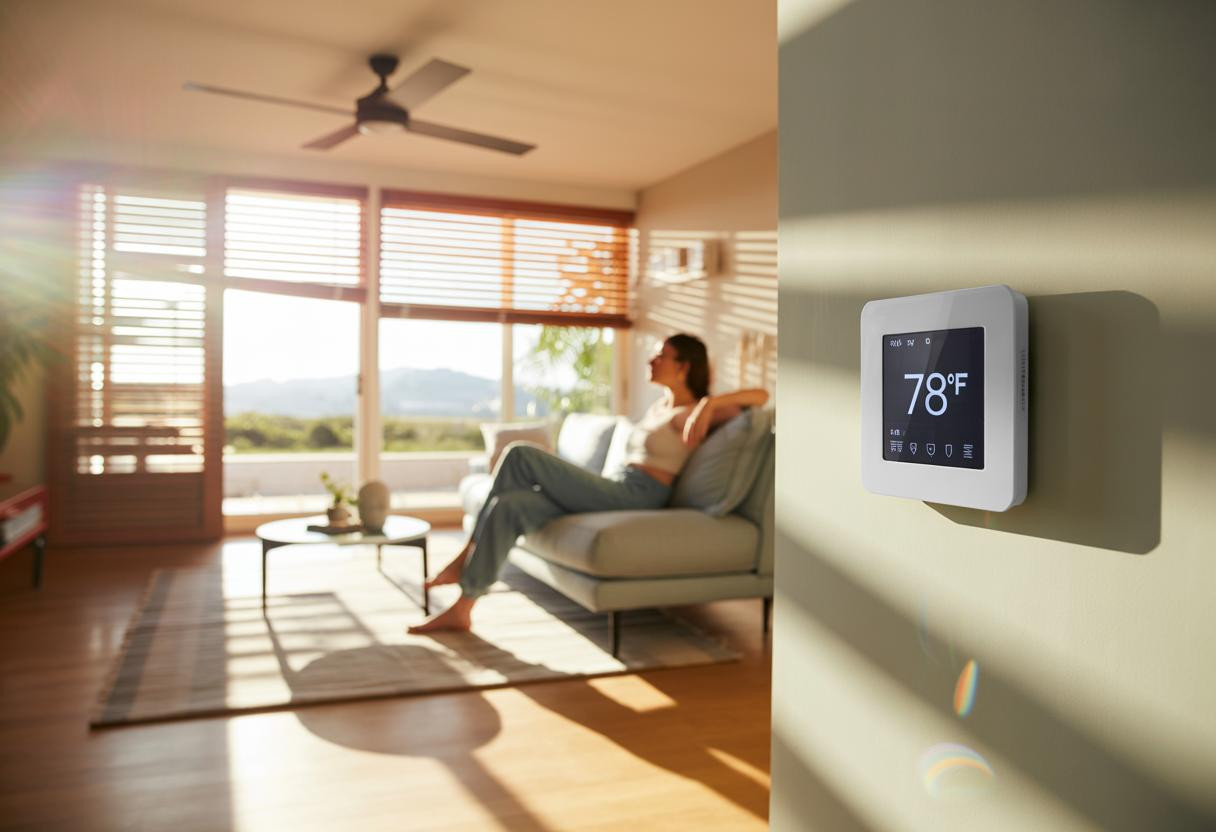Feeling the summer heat but dreading those sky-high electricity bills? You’re not alone. With energy costs continuing to rise in 2025, smart air conditioning management has become essential for maintaining both comfort and financial peace of mind. “The average household can reduce cooling costs by 20-30% without sacrificing comfort by implementing a few strategic changes,” explains Emily Chen, energy efficiency consultant at EcoHome Solutions.
Set your thermostat strategically
The magic number for summer thermostat settings is 78°F (26°C) when you’re home. Each degree lower increases your energy consumption by 6-8%. “Think of your AC like a car’s gas pedal,” says Chen. “The harder you push it, the more energy it burns—even if you arrive at the same destination.”
When you’re away, bump the temperature up by 7-10 degrees. This simple adjustment can slash your cooling costs by up to 10% annually while maintaining a comfortable sleep environment when you return.
Fans are your wallet’s best friend
Ceiling fans create a windchill effect that makes a room feel 4°F cooler, allowing you to raise your thermostat without losing comfort. Just remember: fans cool people, not rooms—so turn them off when you leave.
For maximum efficiency, ensure your ceiling fans rotate counterclockwise in summer, pushing air downward like a refreshing breeze on a cool summer evening.
Maintenance matters more than you think
Monthly filter changes during summer can improve efficiency by up to 15%. Dirty filters force your system to work harder—like trying to breathe through a straw instead of normally.
- Replace or clean filters monthly during peak usage
- Keep outdoor units free of debris and vegetation
- Schedule professional maintenance annually
- Clean registers and ensure unobstructed airflow
Beat the heat with smart shading
Windows can account for 30% of unwanted heat. Close blinds and curtains during peak sun hours, especially on south and west-facing windows. For a natural cooling alternative, consider planting deciduous trees that provide shade in summer but allow warming sunlight in winter.
Seal leaks and insulate
Air leaks around doors, windows, and ductwork are like leaving your refrigerator door slightly open—energy simply escapes. A well-sealed home requires significantly less cooling power.
“Many homeowners focus exclusively on their AC unit, overlooking that proper insulation and sealing can reduce cooling needs by up to 20%,” notes Mark Thompson, HVAC specialist.
Embrace the power of zoning
Why cool rooms nobody’s using? Close vents in guest rooms and seldom-used spaces. This simple approach redirects cool air to where you actually need it, similar to how you might focus natural remedies where they’re most effective.
- Close doors to unused rooms
- Adjust vents to prioritize frequently used spaces
- Consider mini-split systems for targeted cooling
Nighttime cooling strategies
Take advantage of cooler evenings by opening windows and creating cross-ventilation. This natural cooling technique works like giving your AC a nightshift break, allowing you to stay 7 degrees cooler without electricity.
How will you stay cool while saving?
Implementing even a few of these strategies can significantly reduce your cooling costs while maintaining comfort. Your air conditioner doesn’t have to be an energy vampire—with thoughtful management, it can be both your summer sanctuary and budget’s ally. Which tip will you try first to beat the heat without breaking the bank?
